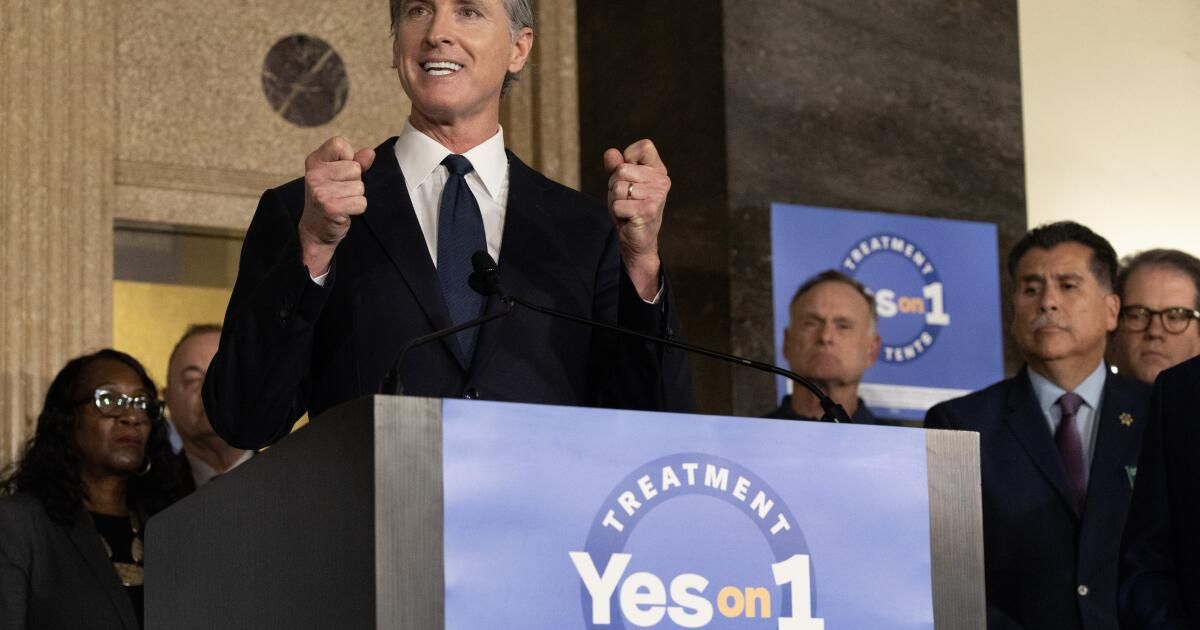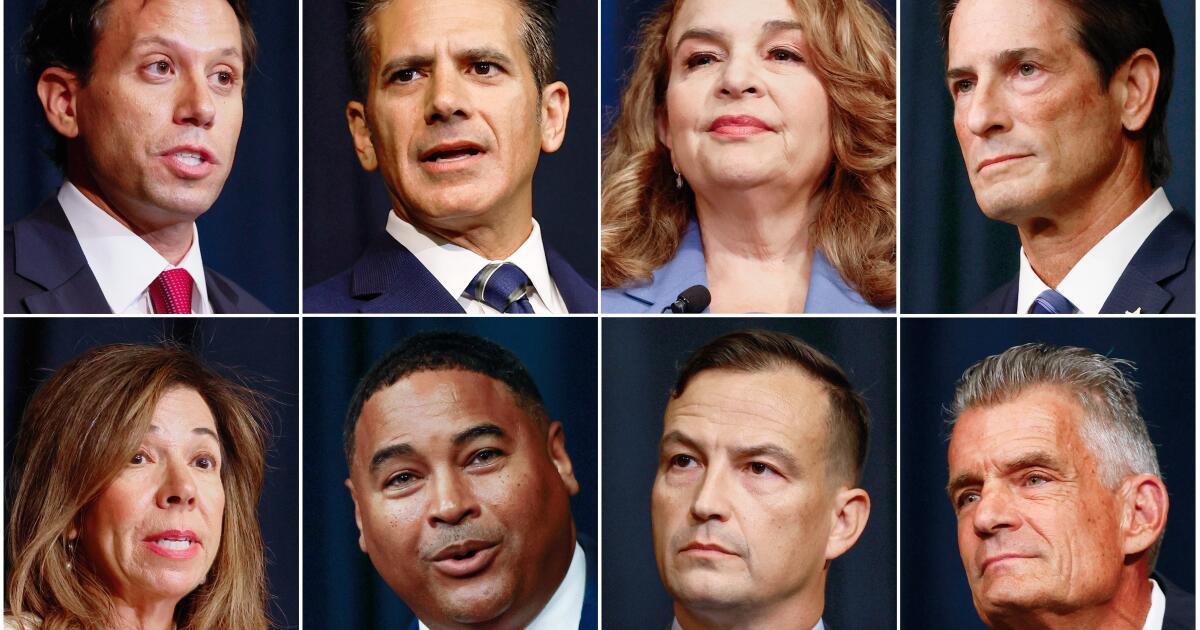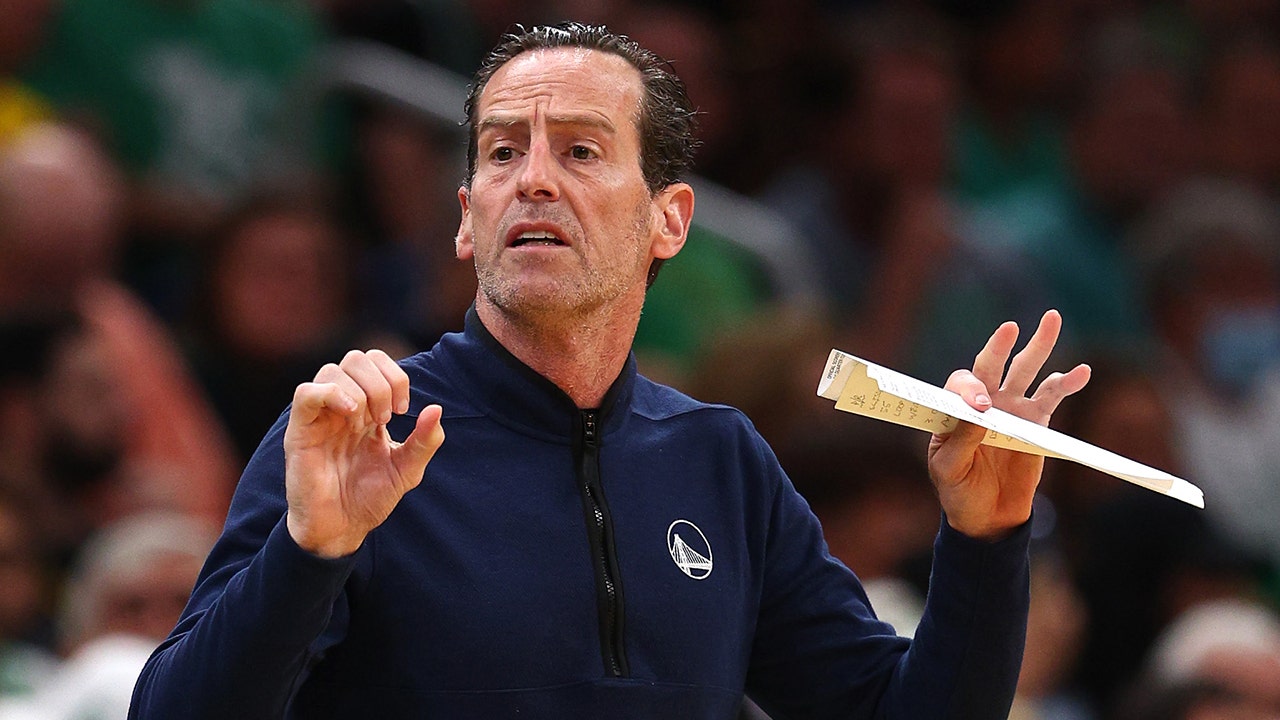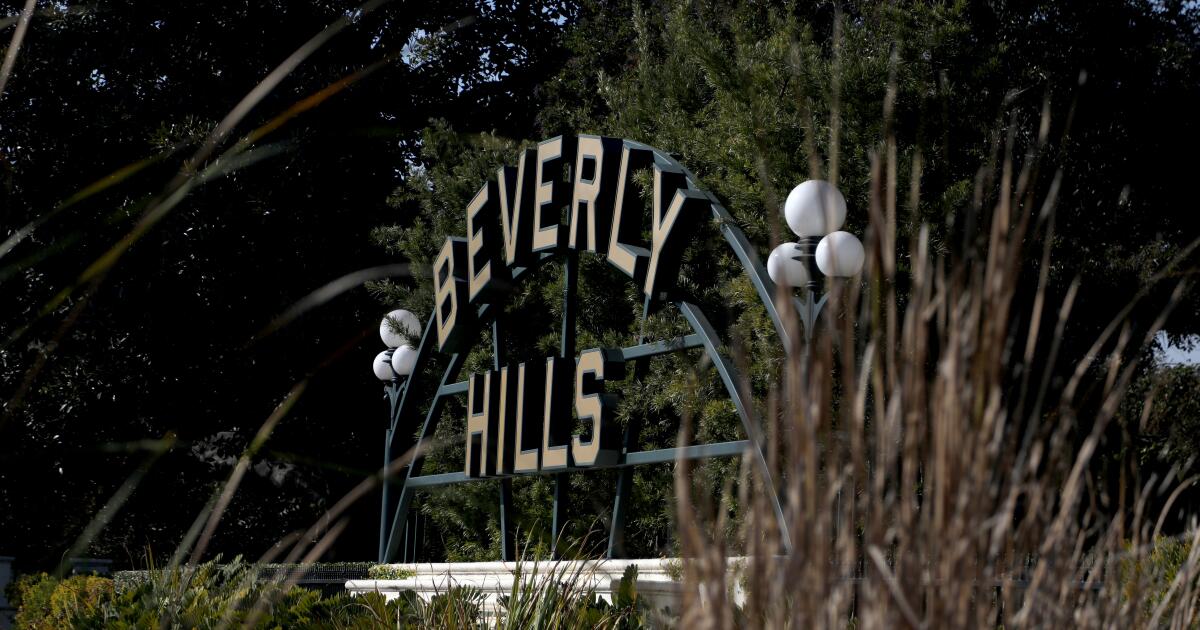The tight race over Gov. Gavin Newsom's $6.4 billion bond measure to transform California's mental health system finally ended Wednesday, more than two weeks after the primary election.
Although election officials have until April 12 to officially certify the results, Proposition 1 led with 50.2% of the vote when the race was called with more than 7.5 million votes counted statewide.
“This is the biggest change in decades in how California addresses homelessness and a victory to do things radically different,” Newsom said. “Now, counties and local officials must match the ambition of California voters. “This historic reform will only succeed if we all take immediate action – state government and local leaders, together.”
The Associated Press rated the passage of Proposition 1 on Wednesday.
Proposition 1 approves the issuance of a new $6.4 billion bond to support 10,000 treatment beds and housing and reconfigures a 20-year tax on mental health services to also fund drug addiction treatment.
The plan is essential to Newsom's strategy for addressing the homelessness crisis in California, an approach that moves away from the liberal model of voluntary treatment toward a more moderate stance of forcing people with serious mental illnesses and substance disorders to receive medical attention.
The bond measure is an important piece of his policy because it provides funding for beds that counties said were essential to achieving their goals. But the measure also faced criticism from left-wing civil rights groups, who were concerned about the repercussions of funding secure mental health facilities, and from their right-wing Republican opponents, who scoffed at the estimated $14 billion price tag amid a huge state budget. deficit.
Despite millions spent on the Yes campaign, pollsters say Proposition 1 barely passed due to lower-than-expected voter turnout that inflated the Republican share of the electorate. Election results showed that inland counties and parts of Southern California opposed the measure, while a majority of voters in Los Angeles and the Bay Area backed the plan.
Newsom's campaign made the strategic decision to put the measure on the March ballot because it believed it could hold up to a more conservative electorate. Waiting until the November general election, when more Democrats are expected to vote, could have increased the measure's chances of success, but it also would have left Proposition 1 competing with other bonds for voter support.
The Californians Against Proposition 1 campaign said the measure was not a “huge” victory for Newsom, but rather “an embarrassing victory.”
“By cutting services and reducing early intervention programs, Proposition 1 could have the perverse effect of increasing the number of people experiencing homelessness and need of services,” the campaign said in a statement.












